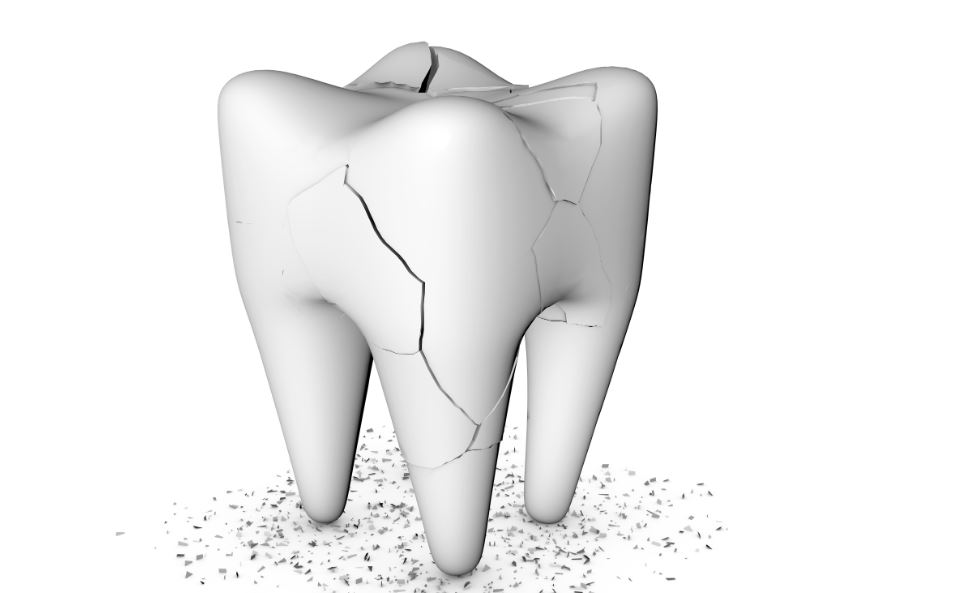
A smile is a powerful expression that transcends cultural boundaries and language barriers, serving as a universal symbol of warmth, connection, and positivity. Beyond its aesthetic appeal, a genuine smile holds profound significance in human interaction, facilitating communication, fostering social bonds, and enhancing overall well-being. A smile has the remarkable ability to convey emotions such as joy, kindness, and empathy, instantly brightening the mood of both the giver and the recipient. It plays a pivotal role in shaping first impressions, influencing perceptions of trustworthiness, approachability, and likability. Furthermore, a smile is intricately linked to personal confidence and self-esteem, empowering individuals to navigate life’s challenges with resilience and grace. Whether shared in moments of celebration, comfort, or compassion, the simple act of smiling has the transformative power to uplift spirits, bridge divides, and create lasting connections in a world that thrives on human connection.
Your Smile is Important
The emphasis placed on a person’s smile stems from various factors, including social, psychological, and evolutionary reasons:
- Communication: Smiling is a universal nonverbal cue that communicates happiness, friendliness, and approachability. A genuine smile can help establish rapport and foster positive social interactions, making it a crucial aspect of effective communication.
- First Impressions: A smile is often the first thing people notice when meeting someone new. It can leave a lasting impression and influence how others perceive an individual’s warmth, likability, and trustworthiness.
- Self-Confidence: A confident smile can boost self-esteem and contribute to a positive self-image. Feeling good about one’s smile can empower individuals to navigate social situations with greater ease and assertiveness.
- Social Bonding: Smiling triggers the release of feel-good hormones like endorphins and dopamine, promoting feelings of happiness and connection. Sharing smiles with others strengthens social bonds and fosters a sense of belonging within communities.
- Attractiveness: A healthy, attractive smile is often associated with youthfulness, vitality, and overall attractiveness. Many people aspire to achieve a beautiful smile as it can enhance their physical appearance and boost their romantic and social appeal.
- Health Indicator: A smile can serve as an indicator of overall health and well-being. White, straight teeth are often associated with good oral hygiene and general health, while a lack of smiling may signal underlying emotional or psychological issues.
- Cultural Significance: In various cultures, smiling plays a significant role in social customs, rituals, and expressions of hospitality. It can convey respect, gratitude, and sincerity in different cultural contexts.
- Evolutionary Advantage: Smiling is believed to have evolutionary roots, dating back to our early ancestors. It may have served as a nonverbal signal to indicate non-aggressive intent, promote cooperation, and strengthen social bonds within hunter-gatherer communities.
Overall, the emphasis placed on a person’s smile reflects its multifaceted role in social interactions, emotional expression, and personal well-being across different contexts and cultures.
Do You Love Your Smile?
People may not love their smile, as a matter of fact, they may even dislike their smile for various reasons, including:
- Cosmetic Concerns: Individuals may be dissatisfied with the appearance of their teeth due to issues such as discoloration, misalignment, gaps, or irregular shapes. These cosmetic imperfections can affect their confidence and self-esteem.
- Dental Issues: Dental problems such as cavities, gum disease, missing teeth, or oral health issues can impact the aesthetics of a smile and cause discomfort or embarrassment.
- Genetics: Some people are born with naturally uneven or discolored teeth due to genetic factors, which can contribute to dissatisfaction with their smile.
- Trauma or Injury: Accidents or injuries to the mouth, such as chipped, cracked, or broken teeth, can result in a smile that individuals feel self-conscious about.
- Aging: As people age, changes in the teeth, gums, and surrounding structures can occur, leading to a less youthful or attractive smile.
- Social Pressure: Social media and societal standards of beauty often emphasize the importance of having a perfect smile, leading individuals to compare themselves to unrealistic standards and feel insecure about their own appearance.
- Functional Concerns: In addition to cosmetic issues, some people may dislike their smile due to functional problems such as difficulty chewing or speaking, which can affect their overall quality of life.
- Past Experiences: Negative experiences with dental treatment or bullying related to the appearance of their smile in the past can contribute to a dislike or fear of smiling.
- Cultural or Ethnic Factors: Cultural perceptions of beauty and dental norms can vary widely, influencing how individuals perceive their own smiles within their cultural context.
- Psychological Factors: Underlying psychological issues such as low self-esteem, body dysmorphia, or anxiety can also play a role in how individuals perceive their smile.
Addressing these concerns often involves a combination of cosmetic dental treatments, oral health care, and psychological support to help individuals feel more confident and comfortable with their smile.
You Can Love Your Smile: Porcelain Veneers Create Natural, Beautiful Smiles
Porcelain veneers offer a transformative solution for achieving a beautiful and natural-looking smile. Custom-crafted to enhance the shape, color, and alignment of teeth, veneers are meticulously designed to blend seamlessly with the natural dentition, creating a harmonious and radiant appearance. Made from high-quality porcelain material, veneers mimic the translucent properties of natural tooth enamel, resulting in a lifelike finish that reflects light and replicates the subtle nuances of a healthy smile. Moreover, the versatility of porcelain veneers allows for personalized customization, ensuring that each veneer is tailored to complement the individual’s facial features, smile line, and aesthetic preferences. Whether addressing stains, chips, gaps, or minor misalignments, veneers offer a durable and long-lasting solution that not only enhances the beauty of the smile but also restores confidence and revitalizes self-assurance. With porcelain veneers, individuals can confidently showcase a radiant and natural-looking smile that exudes charm, elegance, and timeless appeal.
What are Porcelain Veneers?
Here is the simple answer: Porcelain Veneers are thin, custom-made shells that are permanently attached to the front of your natural teeth by your cosmetic dentist to transform your smile.
- Porcelain Veneers create a strong, beautiful, smooth ceramic surface that transforms the outer layer of the tooth and can transform your smile.
- Veneers can actually strengthen the tooth if it is fractured, chipped, or heavily worn down from grinding.
- Veneers can dramatically change the look of your teeth when it comes to shape, texture, and color.
- Porcelain Veneers can have life-changing results for people who dislike, are dissatisfied or self-conscious about their smile.
Porcelain Veneers San Antonio: What You Need to Know
Porcelain veneers can be a great option for enhancing your smile to look beautiful and natural, but there are a few things you should know before moving forward:
- Consultation: Start by consulting with a qualified cosmetic dentist. They will assess your oral health and discuss your goals to determine if veneers are the right choice for you.
- Procedure: The process typically involves multiple visits. During the first visit for porcelain veneers San Antonio, your cosmetic dentist will prepare your teeth by removing a small amount of enamel to make room for the veneers. Then, they’ll take impressions of your teeth to create custom veneers. Temporary veneers may be placed while your permanent ones are being made. Finally, the permanent veneers are bonded to your teeth during a subsequent appointment.
- Durability: Porcelain veneers are durable, but they’re not indestructible. Avoid biting hard objects like ice or using your teeth to open packages to prevent damage.
- Maintenance: Veneers require regular maintenance, including daily brushing and flossing and routine dental visits for check-ups and cleanings. Avoid stain-causing foods and beverages to keep your porcelain veneers San Antonio looking their best.
- Cost: Porcelain veneers can be expensive, and they may not be covered by dental insurance since they’re considered a cosmetic procedure. Make sure to discuss the cost with your dental team and explore payment options.
- Longevity: With proper care, porcelain veneers can last for many years. However, they may need to be replaced eventually due to normal wear and tear.
- Aesthetics: Porcelain veneers are custom-made to match the color, shape, and size of your natural teeth, providing a natural-looking result. However, it’s essential to communicate your preferences with your cosmetic dentist to ensure you achieve the desired outcome.
- Risks: While rare, complications such as tooth sensitivity, gum irritation, or veneer detachment can occur. Discuss any concerns with your dentist before proceeding with porcelain veneers San Antonio.
- Alternative Options: Depending on your specific needs and preferences, there may be alternative cosmetic treatments to consider, such as dental bonding or teeth whitening. Your cosmetic dentist can help you explore all available options.
- Commitment: Getting veneers is a long-term commitment. Once your natural enamel is removed, it cannot be replaced. Be sure you’re fully informed and confident in your decision before proceeding with the treatment.
Remember to discuss any questions or concerns you have with your cosmetic dental team to ensure you make an informed decision about whether porcelain veneers are right for you.
Related Articles:
- Your Porcelain Veneers Expert in San Antonio Creates Natural Smiles
- Cosmetic Dentist San Antonio Achieve Your Smile Goal
Your smile is a very personal thing. So whether you want porcelain veneers applied to just one tooth or multiple teeth, we can help you achieve the smile you want. They can be customized to help them look natural in the context of your surrounding natural teeth. There’s a big difference in getting a couple of veneers vs. a smile makeover of 10 to 20 veneers. For patients who are completing a smile makeover with veneers, we like to take into account the entire smile, including the whole face, for the best aesthetic result. This gives the smile a symmetrical, natural look that’s personalized for that specific patient and can transform your smile.
Related Article: Choosing Porcelain Veneers for a Naturally Beautiful Smile
Are You a Good Candidate for Porcelain Veneers?
You’ll need to be in good oral health to get any kind of veneer. To ensure you’re a good candidate, your cosmetic dentist will first examine your mouth for any underlying issues, like tooth decay. They may also take X-rays, to make sure your tooth structure is sound.
Some minor misalignment is fine, but if you have more seriously crooked teeth, it’s likely that you’ll need braces or clear aligners before you can go this route.
Anyone who grinds their teeth at night should seriously consider getting a mouth guard, to prevent damage to their veneers.
Unless you’re getting porcelain veneers San Antonio on all your teeth, it’s also a good idea to get your natural teeth whitened before you and your dentist choose the shade of your veneers. You’ll need touch-up whitening of your unveneered teeth every year or two, but this will help ensure that all your teeth match and look more natural.
Learn more about Porcelain Veneers from NewMouth.com
We Can Help You Transform Your Smile!
Show off your smile with porcelain veneers or we can combine our cosmetic dentistry services to create a full smile makeover! If you’re concerned about discolored, missing, chipped, misaligned, or cracked teeth, come talk to us to see what your best solution is for a natural-looking, healthy, beautiful smile. We can treat anything from disease to replacing missing teeth and create a new smile you can be proud of.
Porcelain veneers San Antonio create natural smiles and are one such procedure that we have used to help our patients achieve the look and function they want. If you have been dreaming of the perfect smile, reach out to your porcelain veneers expert, Dr. Skrobanek and his team of professionals in San Antonio to discuss how veneers could be the solution for you. Whatever your smile goals are, we can help you meet them at GPS Dental. Please call to schedule your Smile Consultation at 210-633-3477
Dr. Gary P. Skrobanek’s experienced and friendly team at GPS Dental offers affordable dental care for all ages in San Antonio, TX area. Our Brooks City Base dentist office is conveniently located and offers early morning appointment times Monday through Friday to meet your needs. At GPS Dental, we promote dental health awareness to our patients and provide most dental services, from family and general dentistry to dental implants, sleep apnea, TMJ / TMD Treatment, cosmetic dentistry and much more. We accept most dental insurance plans and offer affordable financial solutions for any budget. Call us at 210-633-3477 to make an appointment.









